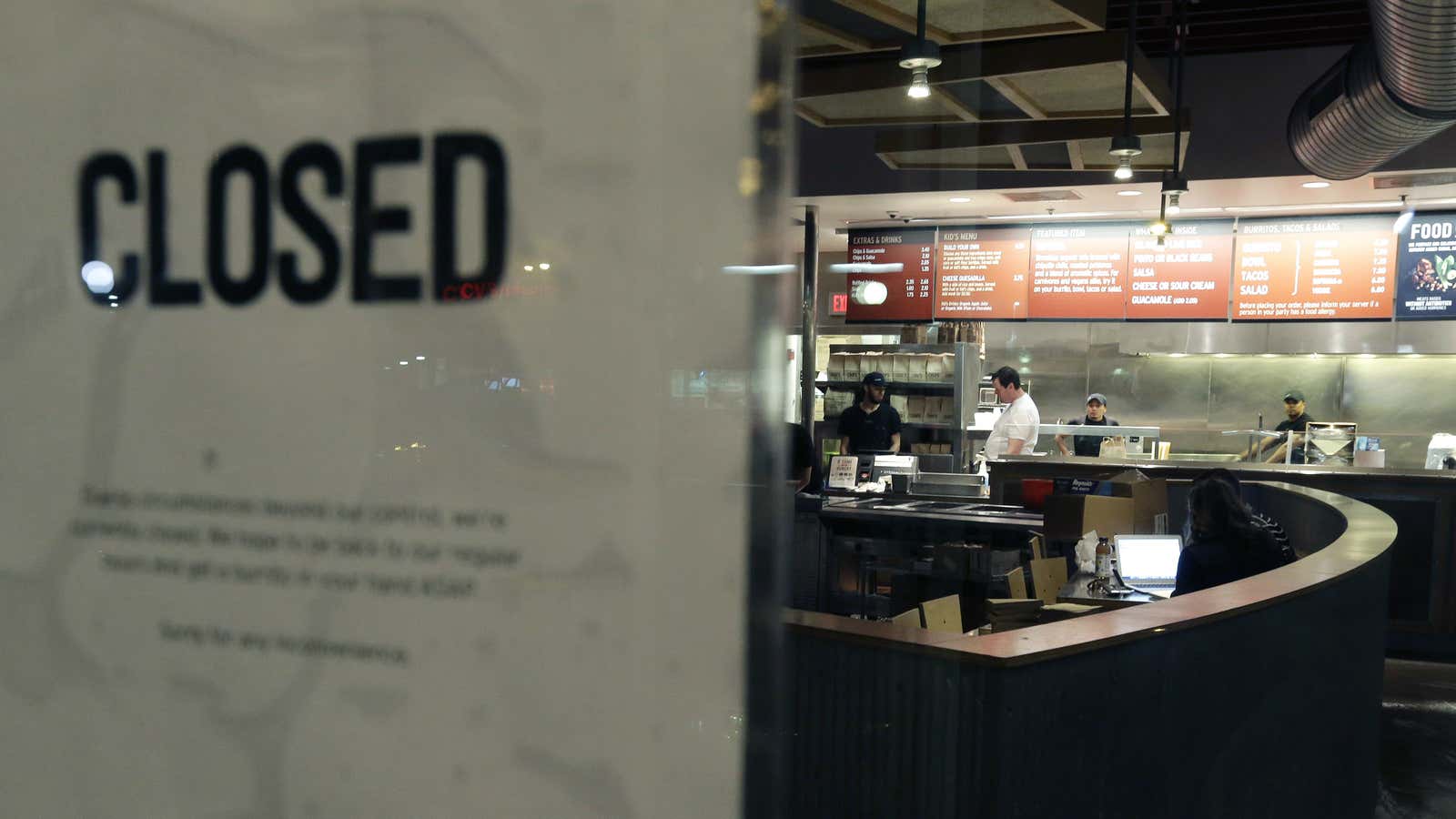Chipotle’s latest week is not one that any company would envy. Here’s a quick rundown of the last several days:
- Friday (Dec. 4): The Centers for Disease Control and Prevention say an E. coli outbreak linked to Chipotle’s restaurants has sickened 52 people in nine states. Chipotle releases an SEC disclosure projecting a sales drop of 8% to 11% for the fourth quarter—its first quarterly decline as a public company.
- Monday (Dec. 7): Chipotle’s stock slips on Friday’s news.
- Tuesday (Dec. 8): Boston College says 30 students became ill over the weekend after eating at a Chipotle in Cleveland Circle.
- Wednesday (Dec. 9): Health officials confirm that the food-borne illness affecting Boston College students is the highly contagious norovirus. The count of sick students rises to more than 120.
On Thursday, the saga continued. A Boston College spokesman said 141 students had reported symptoms of norovirus. Chipotle founder and co-CEO Steve Ells went on NBC’s Today to publicly apologize for the company’s spate of health scares. “I’m sorry for the people who got sick,” Ells told Matt Lauer. “We’re doing a lot to rectify this and to make sure this doesn’t happen again.” Chipotle’s stock, which was down about 10% since news of the E. coli cases first broke, recovered a bit.
But later that day, Reuters reported that health officials had shut down a Chipotle in Seattle after encountering “repeated food safety violations.” The company had just reopened that restaurant after closing it over the E. coli outbreak. (Chris Arnold, a spokesman for Chipotle, said in an email that the location was shuttered “because of an issue with hot holding temperatures.”)
Which brings us to today: Another wave of bad headlines, and shares down nearly 2%. In another universe, a single restaurant closure over hot holding temperatures might not be that big of a deal, but right now it’s the last thing Chipotle needs. After its widespread E. coli scare and the localized, intense norovirus incident, Chipotle simply can’t afford to have another food safety problem added to the list. Consumer and investor confidence alike are already stretched thin.
Chipotle’s current challenge is to regain America’s trust by proving that it can be, as Ells said, “the safest restaurant to eat at.” In his interview with Lauer, Ells emphasized the steps that Chipotle is taking on this front. He says that when the Boston Cleveland Circle location reopens, it “will be completely sanitized.” Regarding the E. coli outbreak, Ells says the “silver lining” is that “we have looked at every single ingredient that we use … we’ve had a team of epidemiologists and food safety experts to raise our standards from the already industry norms.”
But if a restaurant that was just shut down, cleaned, and reopened in Seattle still isn’t up to par, consumers could understandably have concerns about other stores. It’s also hard to ignore this line in the “risk factors” section of Chipotle’s 2014 annual report: “We may be at a higher risk for food-borne illness outbreaks than some competitors due to our use of fresh produce and meats rather than frozen, and our reliance on employees cooking with traditional methods rather than automation.”
